Whether you call them rock doves or pigeons, this cooing bird is familiar to most of the world.
You’ve probably seen them pecking away at the detritus of the streets, eating everything from bread crumbs to bits of rock, but what do wild pigeons eat and what’s healthy for them?
It might be easier to ask what pigeons don’t eat. Pigeons have adapted over time, expanding their diets to include much of the refuse abundantly available in cities.
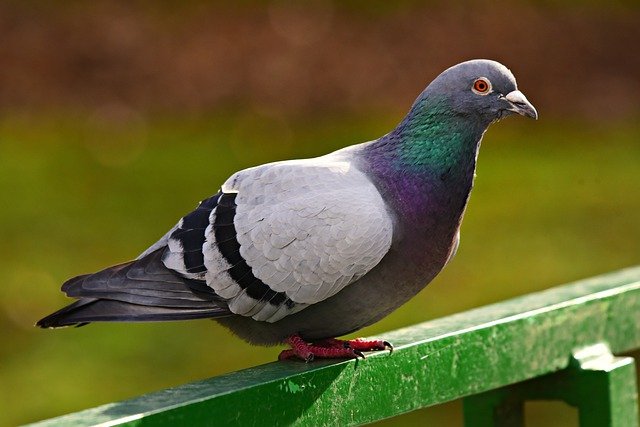
The healthiest options are still the seeds and grains they would find in the wild, along with the occasional serving of bugs and snails.
However, these bobbing birdies will feast on a variety of foods you might find on your own plate.
Wheat
This cereal grain is beloved by the cooing coterie and is a dietary staple. Easy to eat, and offering a healthy balance of nutrients, wheat can make up 25%, or more, of a pigeon’s diet.
Wheat packs protein, fibre, and fat into each tiny seed. The minerals manganese, phosphorus, niacin and sulphur are also present, the last of which is especially useful during moulting.
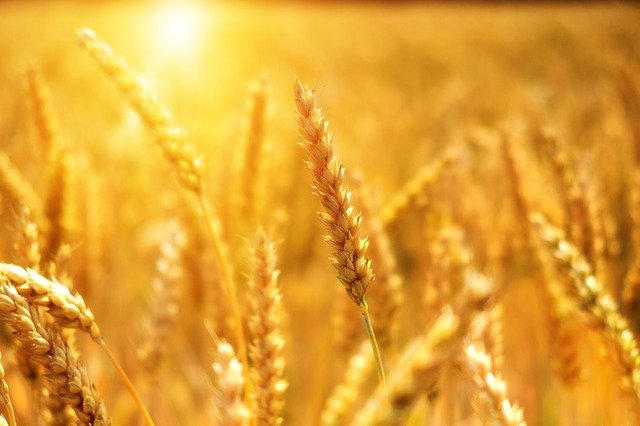
Pigeons like their wheat grains to have a harder texture. They tend to pass up on softer varieties, particularly freshly reaped grains that haven’t had a chance to dry.
Preferably, wheat should be mixed with other, more nutrient-dense options. It has a decent fat to protein ratio, but too much of it can result in birds gaining an unhealthy amount of weight.
Oats
Pigeons are fans of this high fat, protein-rich oat primarily during the breeding season.
The protein is crucial for the development of the chicks, while the fat and carbs provide energy for both the babies and their parents.
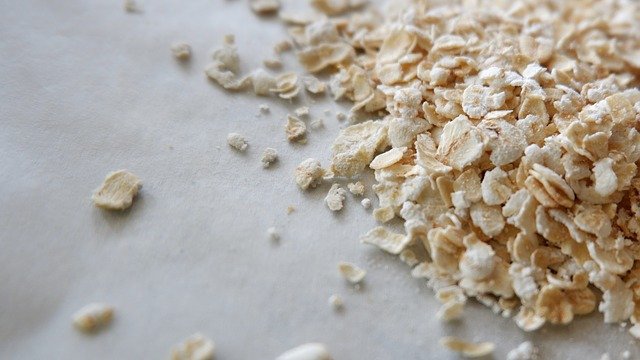
Oats also contain phosphorus, thiamin, and magnesium. This is good for bone health, as well as nerve functionality. Racing pigeons are often fed oats leading up to a competition for just that reason.
Pigeons have an easier time breaking down dehusked oats, but will eat them how they find them. That said, this grain packs quite a punch, and should only make up 5% or less of a balanced diet.
Corn
Corn is another staple food for some pigeons, and they certainly enjoy it. It contains the trifecta of protein, fibre, and fat, though too much corn can lead to weight trouble very quickly.
That extra insulation isn’t such a bad thing during the winter, however, and corn is a good feed for the cold season. It also has vitamins B1, B9, and C, along with magnesium and potassium.
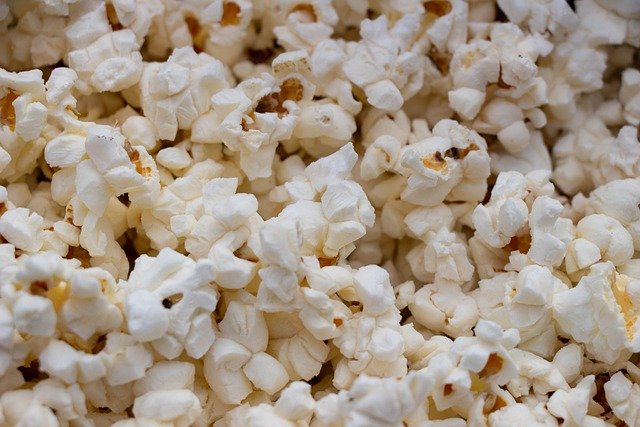
Raw corn kernels are fine, but pigeons also enjoy popcorn. Don’t add any salt or butter, however, as that’s harmful to the health of these birds.
Cracked corn should be avoided. The exposed interior of the kernel is fertile ground for mould and fungus, and the broken bits can injure the pigeon’s crop, leading to canker sores.
Sorghum
Anyone who has purchased a bag of birdseed has probably encountered these round, red or white grass grains. Also known as milo, sorghum is often part of a pigeon’s diet.
That’s not to say this is a favourite menu item. Sorghum is nutritionally light, primarily offering fast energy via carbs, with iron, fibre, and a small amount of calcium in the mix.
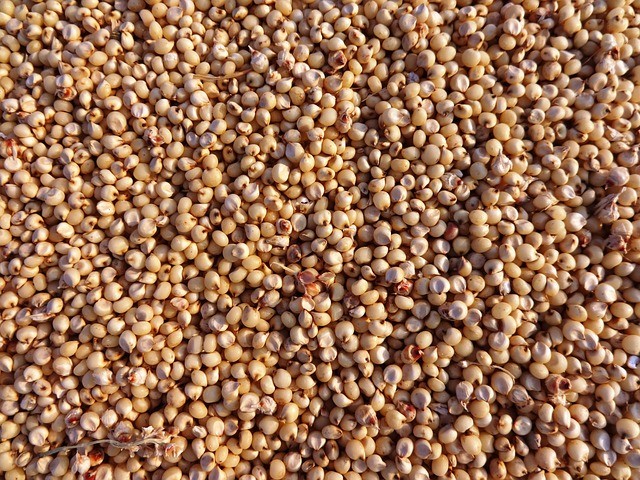
Many other birds have trouble digesting this grain and tend to pass it over in favour of more nutritious morsels.
Pigeons will also prioritize higher quality foods over sorghum, but they won’t turn their beaks up at it if it’s there.
That said, a diet heavily reliant on this feed can lead to various nutrient deficiencies. Sorghum is primarily a filler.
Barley
Barley is a common pigeon feed, but not one that the birds prefer. In fact, the proportion of indigestible fibre in this cereal grain leads some to consider it less of a feed, and more of an intestinal cleanser.
It isn’t devoid of nutritional content, however. The portion that can be digested contains iron, vitamin B6, magnesium, potassium, and a small amount of calcium.
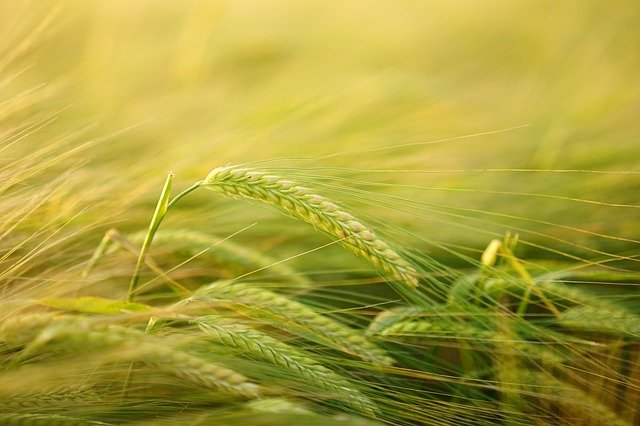
The lack of significant fat or protein means this shouldn’t be the core of a pigeon’s diet. Given a choice, the birds will mostly avoid eating it.
When barley does make up more than 15% of a pigeons diet, it has a negative impact on chick development and egg production. This underscores the lack of vital nutrients.
Rice
Feeding rice to pigeons was a controversial topic in years past. It was commonly believed that raw rice would expand in the bird’s stomach, fatally. Happily, this has been disproven.
Pigeons are among the birds that can actually digest raw rice, so it’s not only safe for them to eat it, but they actually get some nutrients out of it. Unfortunately, there aren’t many nutrients there.
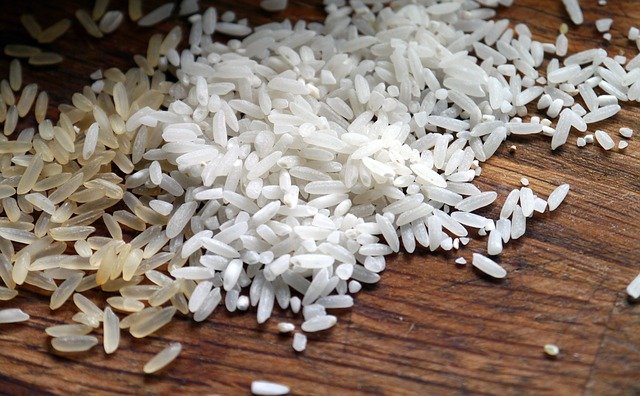
Rice is over 80% carbs. There is some protein, and negligible amounts of iron, calcium, vitamin B6, magnesium, and fibre, but it’s not enough to make rice a meaningful part of a pigeon’s diet.
This is the same whether the rice is white, brown, or instant. Raw rice has a little more to offer than cooked, but this is another case of something pigeons can — and will — eat primarily when there’s nothing better around.
Flax
Flax seeds, also known as linseed, are a type of oilseed. As with other fat-rich feeds, pigeons enjoy these seeds, and the oils they contain are beneficial.
Specifically, flaxseed oil is great for healthy feathers. In fact, those who raise pigeons for racing often feed them flax to increase the feathers’ oily waterproof coating.
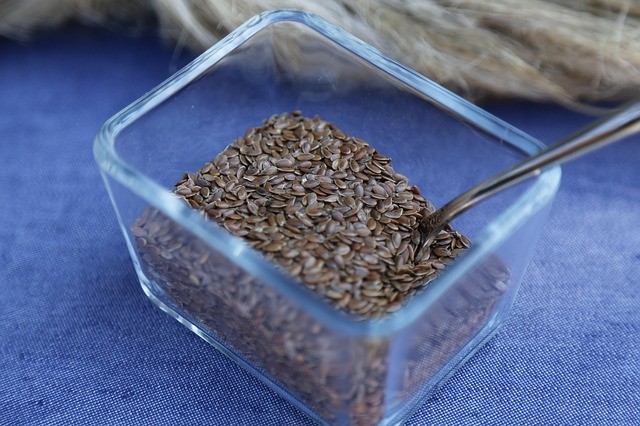
Besides the oils, flax seeds contain vitamin B1, copper, molybdenum, magnesium, phosphorus, and a variety of antioxidants. They make a healthy addition to any feed blend, in moderation.
Flax can function as a laxative, meaning pigeons that eat too much of it develop diarrhoea. And, though the oils are beneficial, they do represent a significant fat content that can lead to obesity if eaten to excess.
Peas
Peas are a highly recommended pigeon feed, and they are a flock favourite. Gardeners often struggle to protect their pea plants from peckish pigeons, such is their affection for this plant.
These little green legumes are just the right size and consistency for easy consumption. Pigeons digest peas easily and get a tremendous nutritional return.
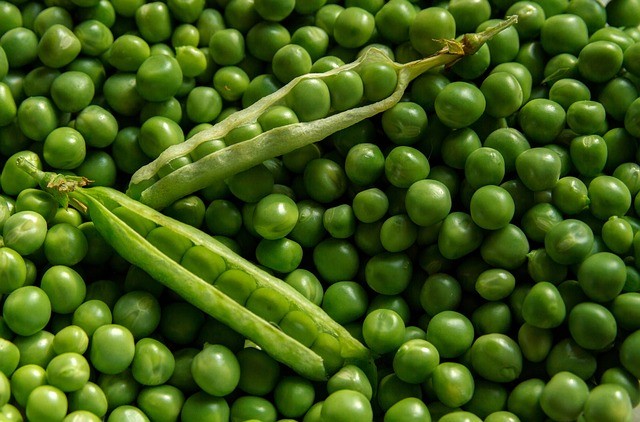
Peas contain high levels of vitamins A, B-6, C, and K. They provide iron, magnesium, manganese, folate, and low levels of calcium. They are even decent sources of protein.
The fat content is very low as well, so these can make up around 20% of a balanced diet with no harm done. They don’t have to be fresh from the garden, either. Dried peas are perfectly fine, including split peas.
Sunflower Seeds
Sunflower seeds are nutrient-dense and are a great source of healthy fats, protein, and fibre. The list of vitamins and minerals stored in this oily seed is long, starting with vitamins A, B-6, C, and E.
The mineral content includes calcium (in the highest amount among seeds and grains listed so far), copper, manganese, niacin, selenium, and zinc.
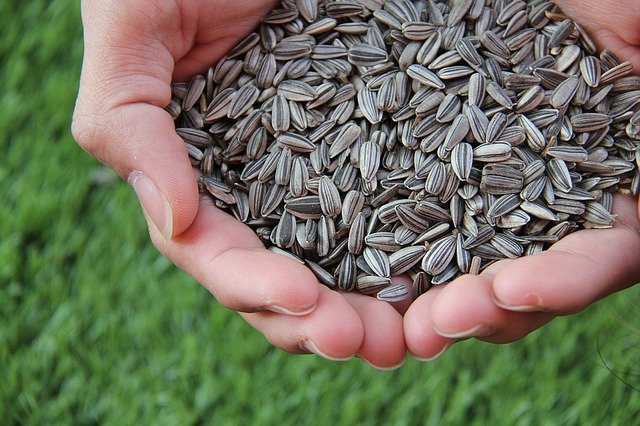
These nutrients are great for bone, nerve, and reproductive health.
Pigeons prefer the black oil variety of sunflower seeds for their thin shells and higher oil content, but they will eat the striped version too.
High fat, high oil feed has its drawbacks, however. Pigeons that consume too many sunflower seeds experience diarrhoea and may become overweight.
Leafy Greens
Pigeons enjoy most varieties of leafy greens. Gardeners often resort to netting their cabbage patch or spinach plants to save them from a voracious flock.
Greens provide a wide assortment of nutrients unavailable from seeds and grains. They have higher levels of calcium and vitamins C and K, omega-3 and omega-6 fatty acids, and antioxidants.
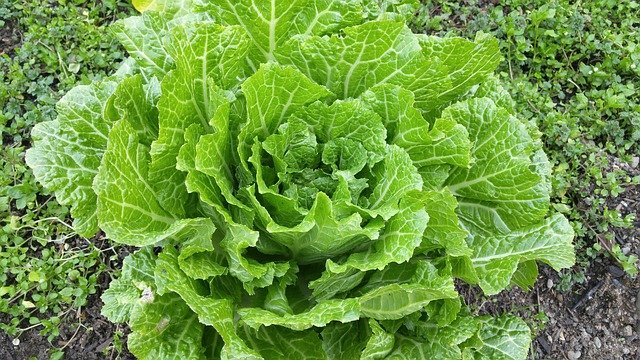
Calcium deficiency is common among pigeons on all seed diets. With greens like spinach and kale as part of the menu, birds can maintain healthy mineral levels.
Greens also help pigeons stay hydrated. These birds have a higher water requirement than the majority of birds, so they are happy to chomp on fresh leaves full of moisture like lettuce and cabbage.
Snails
Surprisingly, pigeons will sometimes eat snails. Some believe this results from pigeons mistaking the snails for seeds or grit, but this behaviour is most prevalent during breeding, which suggests it is deliberate.
Many birds broaden their diets during breeding in search of more protein. Snails are an excellent choice, as they are protein-rich and packed with nutrients.
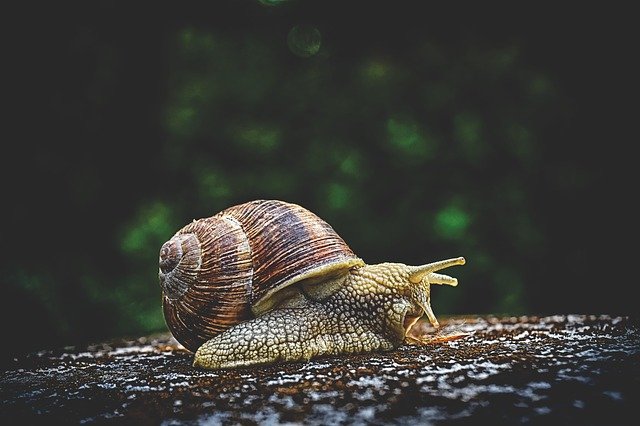
Snail flesh contains complete proteins, healthy fats, iron, calcium, magnesium, phosphorus, zinc, vitamins A, B-6, B-12, and K, along with folate and helpful amino acids.
Meanwhile, the shell is 99% calcium carbonate, providing a potent source of this vital mineral. The shell can be broken down in the pigeon’s crop along with other grit, so it also helps with digestion in general.
What Do Pigeon Chicks Eat?
Newborn and young pigeons are incapable of eating the sort of hard seeds and tough grains that their elders enjoy. During the early stages of life, chicks subsist on something called “crop milk.”
Crop milk is formed from the lining of the crop, the lower portion of the oesophagus where everything a pigeon eats goes first to be broken down by grit.
During the breeding season, both male and female pigeons produce the protein and fat-rich substance, which they regurgitate to feed the chicks. As the chicks grow, adult food is mixed in.
List of Foods Wild Baby Pigeons Eat:
- Wheat
- Sunflower Seeds
- Flax (Linseed)
- Oats
- Peas
- Barley
- Leafy Greens
Humans feeding pigeon chicks commonly use cooked peas as they are of the right consistency and offer a good nutrient variety.
Wild Pigeon Diet F.A.Q’s
Do Pigeons Eat Bread?
Yes, Pigeons do eat bread. However, if you’re feeding wild pigeons from your own home or a local park, then do not solely take bread as it is low in essential nutrients.
Try alternatives to feed pigeons instead of bread, such as; peas, crumble Weetabix and feed it to them, porridge oats (dried), leafy greens such as lettuce and cabbage.
Can Pigeons Eat Rice?
There is a myth that feeding birds uncooked rice will make them explode. This is fundamentally untrue!! Birds, which includes pigeons, can and will eat rice…
As you will be aware of wild pigeons is that they’re incredibly greedy and are always eating. This means that if you feed pigeons rice, then do not overfeed them with this grain.
Overfeeding pigeons with any type of food is unhealthy for the pigeon as it limits the intake of other foods that they’d normally eat and provides them with an unbalanced diet.
Can Pigeons Eat Chocolate?
Chocolate can potentially lead to death in any bird. Therefore, pigeons should not eat chocolate. Chocolate contains caffeine but can also cause vomiting and diarrhoea too.
You will find that a pigeon will probably eat chocolate but just because it eats it doesn’t mean that it should eat it and that it’s good for them. Please do not feed birds chocolate!
Can Pigeons Eat Sesame Seeds?
Yes, Pigeons can and will eat sesame seeds, as well as many other healthy and nutritional benefits. Whenever possible, always feed pigeons a mixture of grains and seeds.
Should you feed the pigeons from home or at a local park, you can feed them a mixture sesame seed, porridge oats, handful of rice, sunflower seeds and crushed peanuts.
Can Pigeons Eat Chips? (French Fries in USA)
In the UK and undoubtedly elsewhere too, you will often see in a morning at the seaside resorts, lots of chip wrappers and abandoned food from the midnight revellers…
You’ll see lots of birds including pigeons and seagulls eating the chips and leftover pizza looking like they’re loving it, they’re probably are but pigeons should not eat chips!
Alright, chips are potato which pigeons can eat but unfortunately, they are also deep-fried in unhealthy fats (not the fats pigeons need) and contain little nutritional benefit.